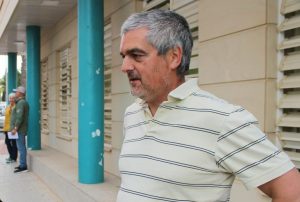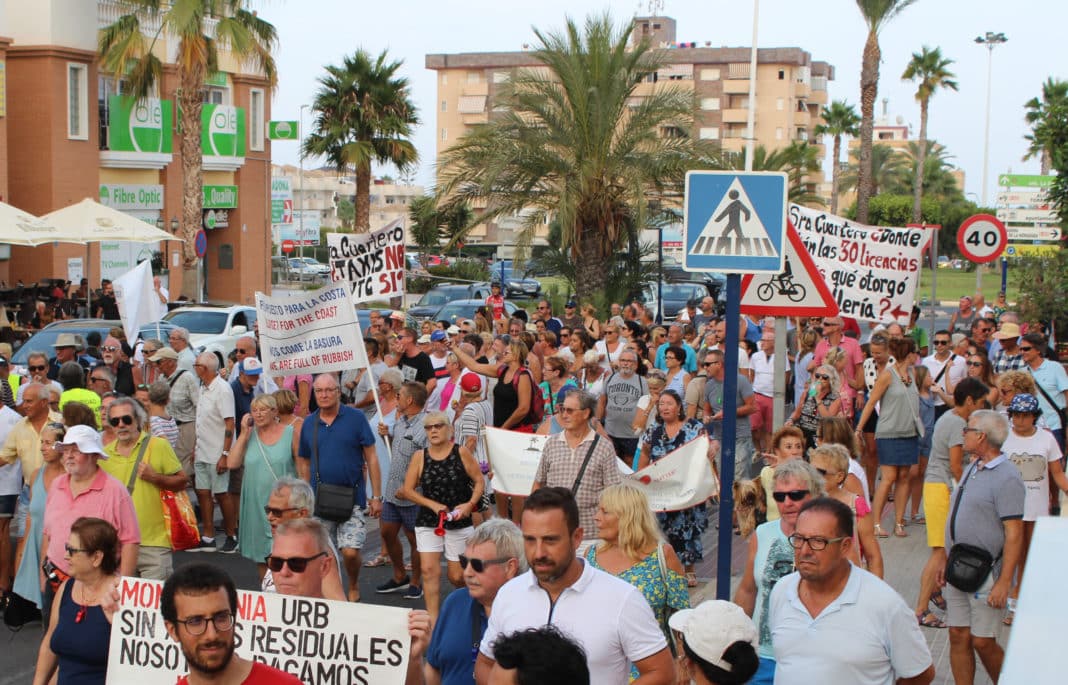- Coastal residents are tired of broken promises
With Municipal elections just 16 months away, residents of the Orihuela Costa are stepping up their demands for a greater voice, for more representation in local government, and in their own administration.
Managed by a council almost 40 km away, residents of the Orihuela Costa have long felt abandoned, as time and again they claim that the coast is being used as little more than a cash cow, to support the activities and the promotion of Orihuela and it’s pedanias, while their own deficiencies are being ignored by the decision makers in the city.
But now, what began in 2019 began as a local association, is about to be officially registered with the ‘Ministerio del Interior’ as the Orihuela Costa Independence Party (PIOC).

The process will begin this coming week which should lead to the issue of it’s legal constitution as an official political party, within the next month or so.
The nucleus of the current group is made up of people of many different nationalities, and is a true reflection of how cosmopolitan the people who reside on the Orihuela Costa are. One of them, the former President of CLARO, Román Jiménez, is keen to move the organisation forward as quickly as possible, so that he and his members can start talking to the many hundreds of coastal voters who share with the party’s future ideals.
PIOC spokesman, Peter Houghton, who has been working alongside Sr Jiménez, says we have been ignored for far too long. We could have a very significant voice on the coast but it is only rarely used. It’s now about time that the politicians in Orihuela were made to wake up to our demands.

Brexit has forced many British people to register. Now, the important thing is they are also registered to vote. Unfortunately though, in recent months, Houghton says he has received a number of complaints from Brits who say they have been refused inclusion on the voting register, despite quoting the bilateral agreement that guarantees their voting rights.
According to the latest data published on 1 January, there are 29,550 foreigners in the municipality, 35.7% of the total, of which 10,976 (13%) are from the United Kingdom, the majority of whom live in Orihuela Costa.
Román Jiménez maintains that the current demographic movement is detrimental to the city: “In a few years the coast will have the same population. We want establish a good relationship, but one that must be on equal terms.” Because, he says, “the coast generates between 50 and 60% of the municipal revenue; however, it only benefits from about 15%”.
But it is not only PIOC who want a better deal for the coast. The feeling of general abandonment has made all of it’s neighbourhood associations very active in their complaints and, for the first time, their discontent translates into a fishing ground for votes.

He says that while complete segregation, as in the case of Pilar de la Horadada, will take many years, administrative decentralisation is definitely possible, with the coast being allocated its own human and material resources, such as Urban Planning management, which cannot continue to carry the burden of financing the entire municipality any longer”.
But he is also wary that, with elections just around the corner, the Municipal Government is finally beginning to wake from it’s slumber and that the promise of a new civic centre is just the opening salvo in what is soon likely to become a propaganda war, as the politicians in Orihuela city regroup in order to keep the powers that they currently enjoy.





